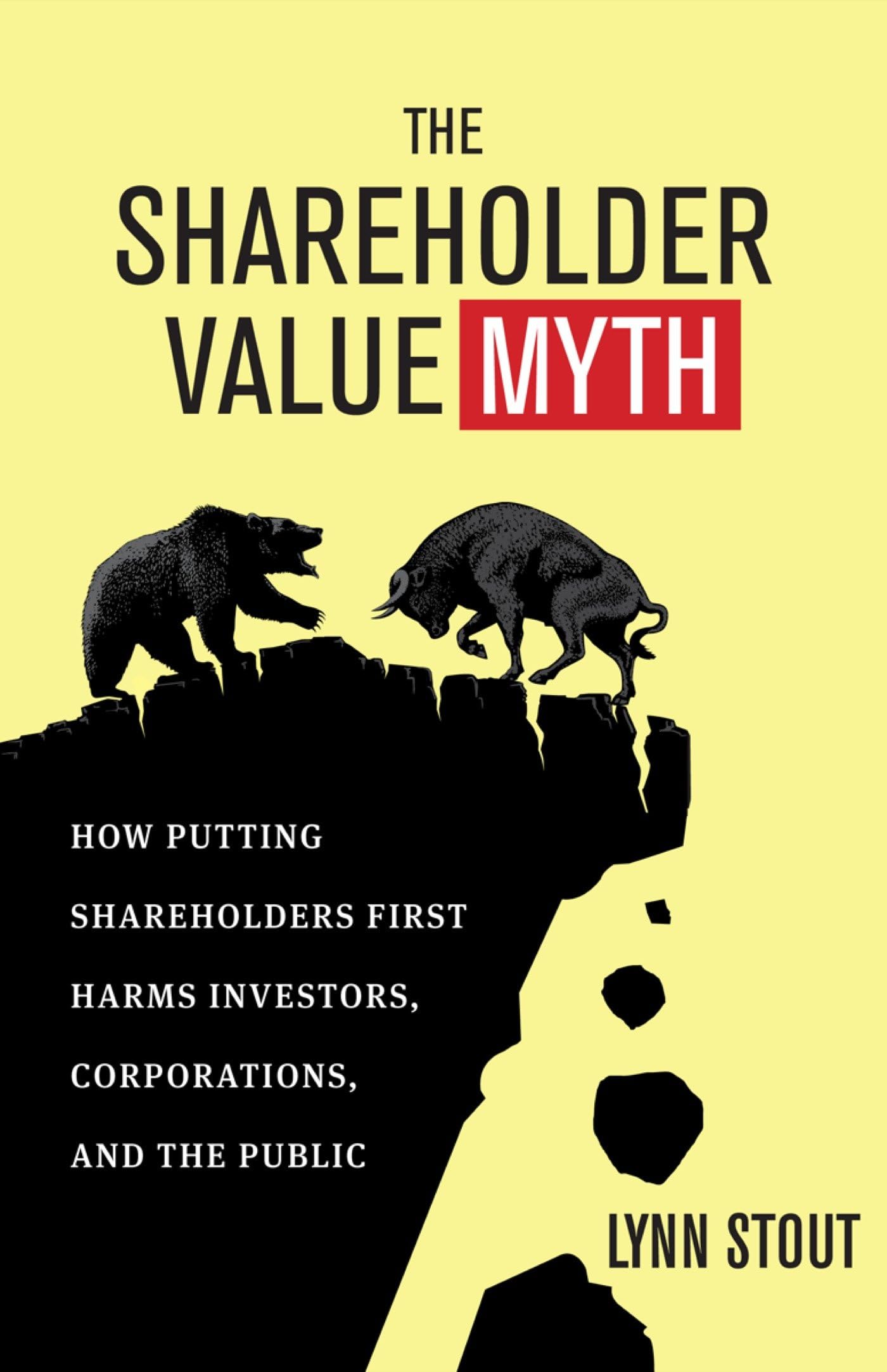Found in 2 comments on Hacker News
tarsinge · 2024-09-19
· Original
thread
"The Shareholder Value Myth" is an interesting book about companies purpose https://www.amazon.com/The-Shareholder-Value-Myth-Shareholde...
minimax · 2014-11-12
· Original
thread
I'm not a lawyer, but I did just read a book† written by a lawyer†† about this topic. I think it's possible that it can vary state to state, but in Delaware (a very popular place to form corporations) the law††† says:
The business and affairs of every corporation organized under this chapter shall be managed by or under the direction of a board of directors, except as may be otherwise provided in this chapter or in its certificate of incorporation.
† http://www.amazon.com/The-Shareholder-Value-Myth-Shareholder...
†† http://www.lawschool.cornell.edu/faculty/bio_lynn_stout.cfm
††† http://delcode.delaware.gov/title8/c001/sc04/index.shtml

